By Alma Solís
asolis@noticiasdepanama.com
Panama City – The Secretary-General of the International Maritime Organization (IMO), Arsenio Domínguez, said during his first official visit to Panama that the economic measures agreed by the organization to reduce shipping emissions do not constitute a tax, but rather a global mechanism aimed at preventing unilateral regulations by individual countries or regions.
“We need global measures so that maritime transport can continue operating efficiently and in this way avoid a more negative and unbalanced implementation,” Domínguez told the press after a conference at the Ministry of Foreign Affairs on his first day in Panama.
The Panamanian, who heads the world’s top maritime body, explained that the objective is to move toward net zero emissions by 2050, in line with the strategy adopted in 2023.
Regarding the position of the United States, which rejects the mechanism and describes it as a global carbon tax, Domínguez was cautious. He confirmed that the U.S. has submitted a document with its concerns but stressed that his role is to maintain cordial negotiations to reach consensus among the 176 member states. “What we are going to do at the next session of the Marine Environment Protection Committee in October is listen to all parties, address concerns, and move forward in such a way that we can take the measures that will allow us to meet the objectives,” he said.
“If the IMO does not adopt these measures, what we will then have are different similar measures or taxes that will be applied to ships. Similar to what the European Union has already done.” He added that in talks with the European Union, the call has been that once the IMO introduces global measures, the EU should remove its own.
The Secretary-General warned that if the IMO does not adopt a global framework, national or regional initiatives like that of the EU—which already applies its own mechanism—will multiply. He noted that dialogue with Brussels includes the understanding that once global measures come into force, the European Union will lift its scheme.
On maritime security, Domínguez highlighted cooperation with countries and the industry to implement best practices in high-risk routes such as the Red Sea, where recent incidents have been reported. He clarified that the route “remains open” and that the IMO seeks to guarantee freedom of navigation through risk assessments, communication protocols, and naval support.
He also mentioned piracy threats and the existence of “ghost fleets.” He recalled that in 2023, the IMO adopted a resolution requiring states to ensure that all ships under their flag comply with safety and environmental protection measures. He added that starting next year, the IMO’s Legal Committee will work on best practices to review conventions and curb the proliferation of substandard vessels, a topic also addressed during his meetings with Panamanian authorities.
Domínguez emphasized that the IMO does not impose sanctions, but instead follows those established by the United Nations Security Council. He also underscored that his visit to Panama allowed him to meet with local authorities, the Canal, and maritime industry representatives to exchange concerns and maintain the country’s active role in the global maritime agenda.
First visit to Panama
During his visit, Domínguez underlined the importance of Panama within the international maritime agenda. “It is my first visit as Secretary-General to Panama, my country, which is not only an honor but also a great occasion to meet with the Ministry of Foreign Affairs, the Panama Maritime Authority, the Canal, and maritime industry associations,” he said.
He explained that the purpose was to share the IMO’s current priorities while also listening to the concerns of the local sector. “Panama, as a maritime country, is always very involved in all the work we carry out within the organization,” he noted.
He added that exchanges with authorities and industry associations help maintain Panama’s active participation in IMO decision-making on issues such as decarbonization, the security of shipping routes, and the application of international conventions.
When asked about prospects for growth and development of Panama’s maritime sector, Domínguez again emphasized security challenges. He noted that one of the main current risks is the situation in the Red Sea. After six months without incidents, recent attacks against shipping have raised concerns once more. “The focus remains on maintaining and respecting freedom of navigation, this international right that must not be compromised. The Red Sea remains open; it is an important commercial area, and that is why we are adopting more operational practices to ensure ships can sail safely,” he said.
He explained that the IMO is working with countries and industry representatives to carry out risk assessments before a vessel decides whether to transit or reroute, to strengthen communications between shipowners, operators, and crews, and to coordinate with naval forces providing protection in the area. Guidelines on best practices against piracy and armed robbery are also being maintained and can be applied in these circumstances.
In parallel, Domínguez addressed the issue of so-called “ghost fleets,” vessels that operate outside international safety and environmental rules, often linked to sanctions evasion schemes. “In 2023, we adopted a resolution for countries to take the necessary measures to prevent these ships from posing a risk to navigation,” he explained. He added that starting next year, the IMO Legal Committee will develop best practices focused on reviewing conventions and reducing the spread of substandard ships, a matter also discussed with Panamanian authorities during his visit.
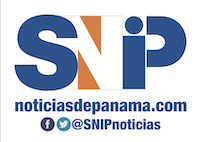


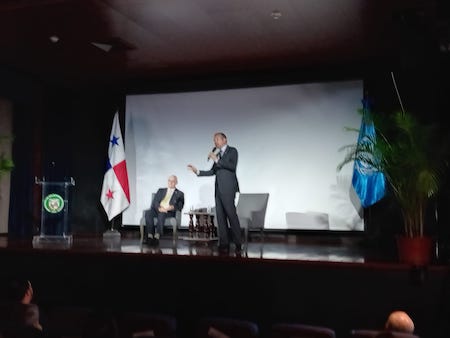

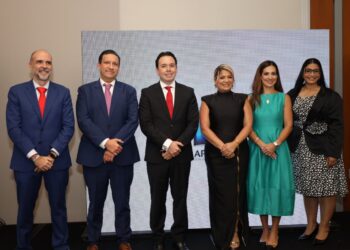
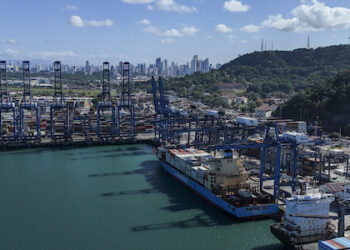

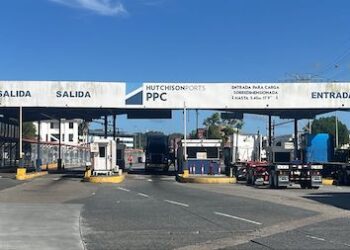

Discussion about this post